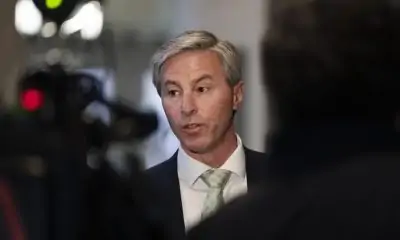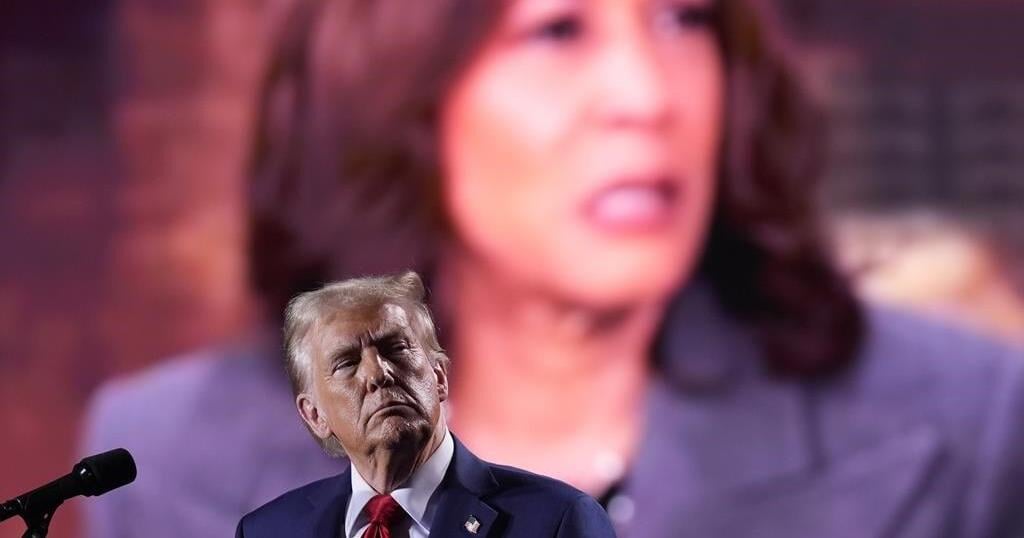President Joe Biden on Friday took new steps along with U.S. allies to punish Russia economically over its invasion of Ukraine, targeting trade and shutting down development funds while also announcing a ban on imports of Russian seafood, vodka and diamonds.
Biden also criticized voices in the United States clamoring for an active U.S. military presence in Ukraine or American backing of a “no-fly zone” to protect Ukrainians from Russian forces.
“The idea that we’re gonna send in offensive equipment and have planes and tanks and trains going in with American pilots and American crews …that’s called World War Three, OK? Let’s get it straight here, guys,” Biden told Democrats in Philadelphia.
“We will defend every inch of NATO territory, every single inch,” including NATO members bordering Russia, Biden said. “Granted, if we respond it is World War Three, but we have a sacred obligation on NATO territory … although we will not fight the Third World War in Ukraine.”
Biden said the economic moves collectively will deliver “another crushing blow” to Russia’s economy, already weighed down by global sanctions that have cratered the rouble and forced the stock market to close. Biden again put the blame on Russian President Vladimir Putin.
“Putin is an aggressor. Putin is the aggressor. And Putin must pay a price,” Biden said at the White House, noting he had earlier spoke by phone to Ukraine President Volodymyr Zelenskiy.
At the White House, Biden joined fellow Group of Seven leaders in calling for revoking Russia’s “most favored nation” trade status, which would allow G7 nations to increase tariffs and set quotas on Russian products. The U.S. Congress would need to pass legislation to revoke the trade status, and lawmakers recently have been moving in that direction.
“We remain resolved to isolate Russia further from our economies and the international financial system,” the G7 said in a statement.
Trade made up about 46% of Russia’s economy in 2020, much of that with China or linked to energy exports that European nations depend on for heat and electricity, making it unclear how deeply these moves will impact Russia’s economy.
Biden also banned the U.S. import of Russian vodka, seafood and diamonds.
He warned that Russia would pay a “severe price” should it use chemical weapons against Ukraine. The United States has expressed fears that Russia could be paving the way for a chemical weapons attack, without citing evidence.
White House spokesperson Andrew Bates told reporters on Air Force One that if Russia is targeting civilians in Ukraine “that would be a war crime.” Russia calls its actions in Ukraine a “special operation.”
Biden said the United States would add new names to a list of Russian oligarchs who are sanctioned, and ban the export of luxury goods to Russia.
In a separate statement, the White House said Biden would ban U.S. investment in Russia beyond the energy sector, and that G7 nations would move to block Russia from funds from the International Monetary Fund and World Bank.
“Those are the latest steps we’re taking but they’re not the last steps we’re taking.” Biden said.
The coordinated moves by the United States, Britain and other allies come on top of a host of unprecedented sanctions, export controls and banking restrictions aimed at pressuring Putin to end the largest war in Europe since World War Two.
Russia on Thursday banned the export of telecom, medical, auto, agricultural, electrical and tech equipment, as well as some forestry products, in retaliation.
The United States is expanding sanctions on Russia to include executives of sanctioned banks and Russian banker Yuri Kovalchuk, as well as Russian lawmakers.
“Russia cannot grossly violate international law and expect to benefit from being part of the international economic order,” the White House said in a statement.
CAVIAR, HEAVY METALS
Stripping Russia of its favored nation status paves the way for the United States and its allies to impose tariffs on a wide range of Russian goods.
Russia is among the world’s top exporters of oil, natural gas, copper, aluminum, palladium and other important commodities, and accounted for 1.9% of global trade in 2020. China is its biggest export destination.
In the United States, removing Russia’s “Permanent Normal Trade Relations” status would require congressional action but lawmakers in both chambers – and on both sides of the political aisle – have signaled their support. The White House will work with lawmakers on legislation to revoke Russia’s status, administration sources said.
In 2019, Russia was the 26th-largest goods trading partner of the United States, with some $28 billion exchanged between the two countries, according to the U.S. Trade Representative’s office.
The ban on U.S. luxury exports to Russia and Belarus – including high-end watches, vehicles, clothes, alcohol and jewelry – takes effect immediately, the Commerce Department said in a separate statement as part of the effort to further isolate Moscow and its allies.
A person familiar with the move said Biden’s administration planned to ban the export to oligarchs of everything from cashmere and cosmetics to track suits, snow mobiles and sails.
The United States imported $1.2 billion in Russian fish and shellfish in 2021, according to the U.S. Census Bureau, including sturgeon black caviar. America that year also imported from Russia $275 million worth of diamonds, and about $21 million in alcoholic beverages, according the Census Bureau.
Top U.S. imports from Russia included mineral fuels, precious metal and stone, iron and steel, fertilizers and inorganic chemicals, all goods that could face higher tariffs once Congress acts to revoke Russia’s favored nation trade status.
(Additional reporting by Jeff Mason in Philadelphia, Jason Lange, David Morgan and Alexandra Alper in Washington and Ismail Shakil in Bengalaru; Editing by Heather Timmons, Alistair Bell and Will Dunham)
Related




























